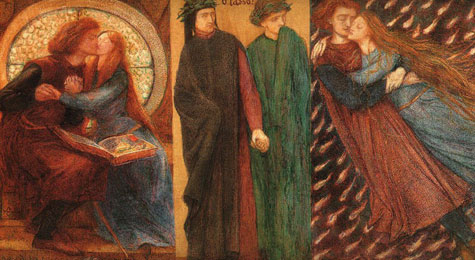
Rod Dreher offers a thoughtful reflection on his first read of Dante’s Divine Comedy in his late 40’s, discovering a wish that he’d read it much earlier in his life. It is, he says, a roadmap to false desire.
What if I had encountered Dante as a young man and taken the lessons the pilgrim learned on his journey to heart back then? Would I have had an easier time staying on the straight path? Perhaps. At least I would have been warned how to avoid the false trails.
Reading the Inferno is especially for the young, he writes, for it is “the book most relevant to young adults, most of whom will not have yet made the errors of passion that landed the middle-aged Dante in the dark wood.” Here he is channelling something that Aristotle observed some 2300 years ago, that young people “live under the guidance of emotion, and pursue above all what is pleasant to themselves and what is immediately before them; but with increasing age their pleasures become different” (Nic. Eth. VIII.3).
What Dreher discovers in Dante is a guide to desire. And what he discovers is illuminating: there is love in hell—but the small, stunted love of those who have never discovered freedom.
The testimonies of the damned reveal precisely the nature of the deceptions to which they fell victim—and to which Dante himself, like all of us, is susceptible. All the damned dwell in eternal punishment because they let their passions overrule their reason and were unrepentant. For Dante, all sin results from disordered desire: either loving the wrong things or loving the right things in the wrong way.
“Follow your constellation.” “Follow paths of excellence and knowledge.” “Love as you will.” These sentiments are, as Ignatius might say, angels of light, appearing good but in reality cacophonous riffs on the melody of the Divine lover. Against the backdrop of these false desires we can understand how Ignatius invited those undertaking the Spiritual Exercises to “overcome themselves” and place all their desires in service to the Divine Majesty.
Image: “Paolo and Francesca da Rimini” by Dante Gabriel Rossetti . Licensed under Public domain via Wikimedia Commons.

Great insights, Tim. Very helpful and wise.